Search
Search Results
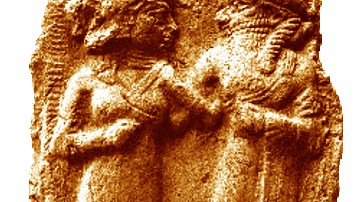
Article
Inanna's Descent: A Sumerian Tale of Injustice
The Sumerian poem, The Descent of Inanna (c. 1900-1600 BCE) chronicles the journey of Inanna, the great goddess and Queen of Heaven, from her realm in the sky, to earth, and down into the underworld to visit her recently widowed sister Ereshkigal...
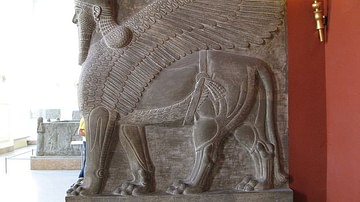
Definition
Tukulti-Ninurta I
Tukulti-Ninurta I (reigned 1244-1208 BCE) was a king of the Assyrian Empire during the period known as the Middle Empire. He was the son of Shalmaneser I (reigned 1274-1245 BCE) who had completed the work of his father, Adad Nirari I, in...
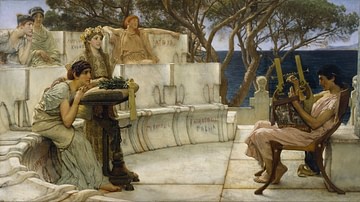
Collection
Great Ancient Greek Poets
The poets of ancient Greece are among the most famous in the world and established many of the forms still used by artists today. From the epic poetry of Homer to the more intimate works of Sappho of Lesbos, ancient Greek poetry has inspired...
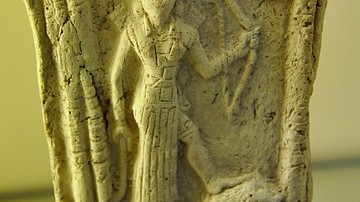
Definition
Ishtar
Ishtar (Inanna in Sumerian sources) is a primary Mesopotamian goddess closely associated with love and war. This powerful Mesopotamian goddess is the first known deity for which we have written evidence. While largely unknown in the modern...
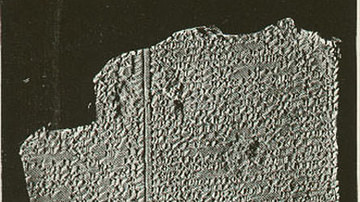
Definition
Literature
Literature (from the Latin Littera meaning 'letters' and referring to an acquaintance with the written word) is the written work of a specific culture, sub-culture, religion, philosophy or the study of such written work which may appear in...
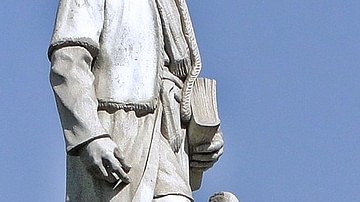
Definition
Ferdowsi
Abolqasem Ferdowsi (l. c. 940-1020 CE, also given as Abul-Qasem Ferdowsi Tusi, Firdawsi, Firdausi) is the author of the Shahnameh (The Persian Book of Kings), one of the greatest works of world literature and the national epic of Iran. He...
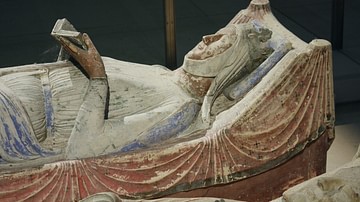
Definition
Eleanor of Aquitaine
Eleanor of Aquitaine (l. c. 1122-1204 CE) was one of the most impressive and powerful figures of the High Middle Ages (1000-1300 CE) – male or female – whose influence shaped the politics, art, medieval literature, and perception of women...
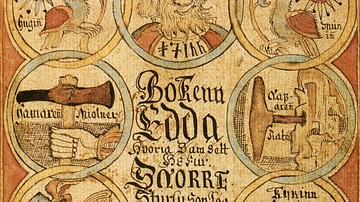
Definition
Edda
Edda is a term used to describe two Icelandic manuscripts that were copied down and compiled in the 13th century CE. Together they are the main sources of Norse mythology and skaldic poetry that relate the religion, cosmogony, and history...
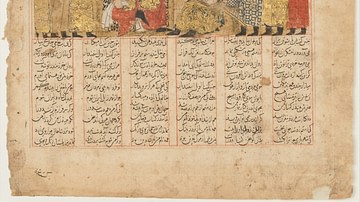
Definition
Shahnameh
The Shahnameh (“Book of Kings”, composed 977-1010 CE) is a medieval epic written by the poet Abolqasem Ferdowsi (l. c. 940-1020 CE) in order to preserve the myths, legends, history, language, and culture of ancient Persia. It is the longest...
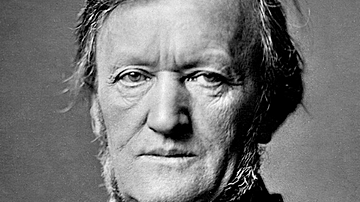
Definition
Richard Wagner
Richard Wagner (1813-1883) was a German composer of Romantic music most famous for his epic operas like The Ring, Tannhäuser, and Tristan and Isolde. Wagner was concerned throughout his career with the theme of redemption through love and...